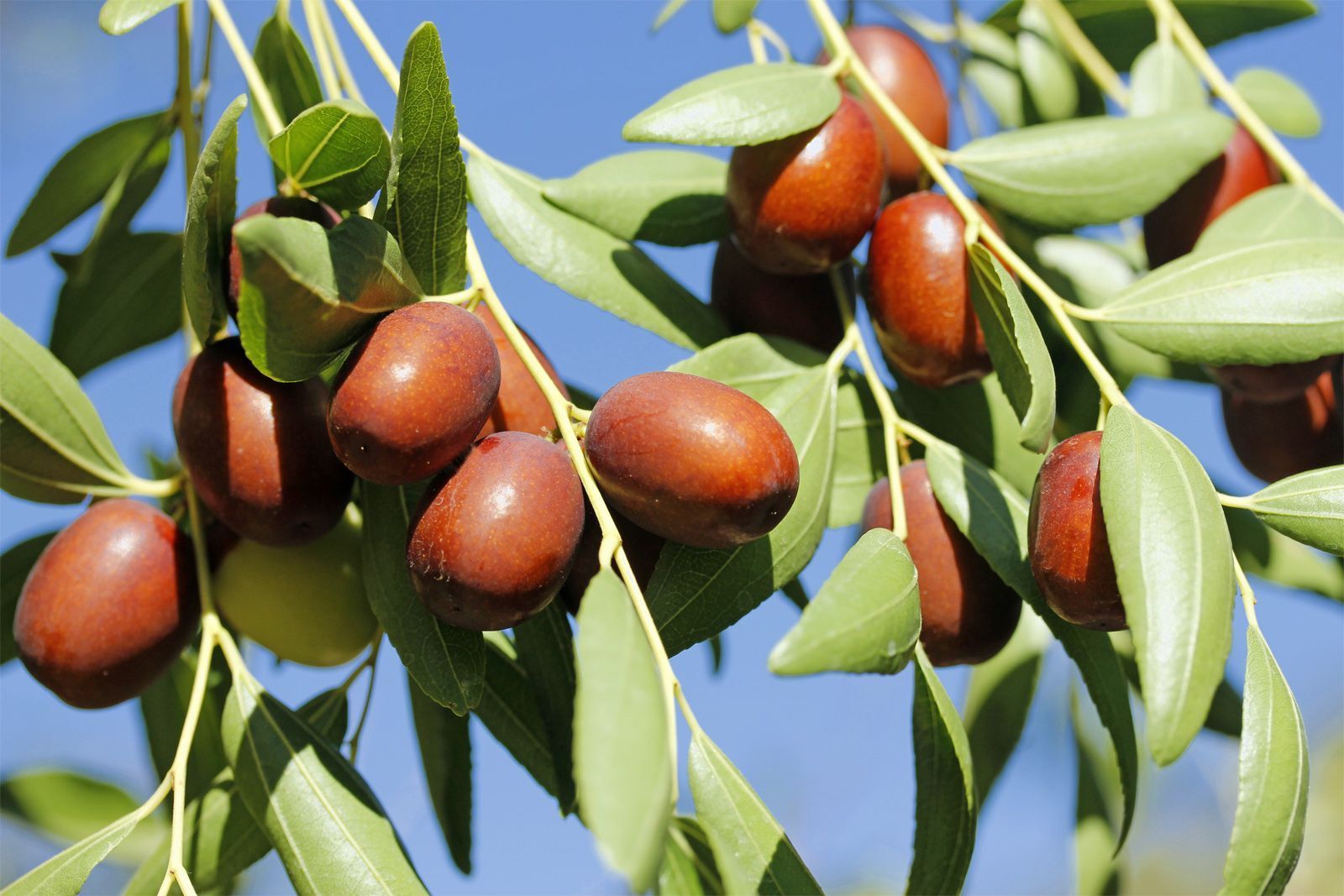
Ziziphus, often called jujube, is a fascinating plant with a rich history and numerous benefits. Ever wondered what makes this fruit so special? Ziziphus has been cherished for centuries, not just for its delicious taste but also for its medicinal properties. From ancient Chinese medicine to modern health trends, this fruit has made quite an impact. Did you know it can help with sleep, digestion, and even skin health? Plus, it's packed with vitamins and antioxidants. Whether you're a health enthusiast or just curious about unique fruits, learning about Ziziphus will surely pique your interest. Ready to dive into some intriguing facts? Let's get started!
Key Takeaways:
- Ziziphus, a versatile plant with nutritious fruits, has a rich history and medicinal benefits. It's also drought-tolerant, making it a valuable addition to both the kitchen and the ecosystem.
- With over 40 species, Ziziphus offers vitamin-rich fruits, natural remedies, and ecological benefits. Its resilience and culinary versatility make it a fascinating and valuable plant to explore.
What is Ziziphus?
Ziziphus is a genus of shrubs and small trees known for their edible fruits and medicinal properties. These plants are native to warm-temperate and subtropical regions worldwide. Let's dive into some fascinating facts about Ziziphus.
Historical Significance
Ziziphus has a rich history that spans centuries. Here are some intriguing historical facts:
- Ancient Use: Ziziphus fruits have been consumed for over 4,000 years, particularly in China and India.
- Medicinal Legacy: Ancient texts from Ayurveda and Traditional Chinese Medicine mention Ziziphus for its healing properties.
- Biblical Reference: Some scholars believe the "spikenard" mentioned in the Bible could be Ziziphus.
Botanical Characteristics
Understanding the botanical aspects of Ziziphus can help appreciate its uniqueness.
- Diverse Species: There are over 40 species within the Ziziphus genus.
- Thorny Branches: Many Ziziphus species have thorny branches, which protect them from herbivores.
- Deciduous Nature: Most Ziziphus species are deciduous, shedding their leaves annually.
Nutritional Value
Ziziphus fruits are not just tasty; they are packed with nutrients.
- Rich in Vitamin C: Ziziphus fruits, especially jujubes, are high in vitamin C, boosting the immune system.
- Antioxidants Galore: These fruits contain antioxidants that help fight free radicals in the body.
- Low-Calorie Snack: Despite their sweetness, Ziziphus fruits are low in calories, making them a healthy snack option.
Medicinal Benefits
Ziziphus has been used in traditional medicine for various ailments.
- Sleep Aid: Compounds in Ziziphus seeds are known to promote better sleep.
- Anti-Inflammatory: The plant has anti-inflammatory properties, useful for treating conditions like arthritis.
- Digestive Health: Ziziphus fruits aid in digestion and can help alleviate constipation.
Cultivation and Growth
Growing Ziziphus can be rewarding due to its resilience and benefits.
- Drought-Tolerant: Ziziphus plants are highly drought-tolerant, making them suitable for arid regions.
- Soil Versatility: They can grow in various soil types, from sandy to clayey.
- Pest Resistance: These plants are generally resistant to pests and diseases.
Culinary Uses
Ziziphus fruits are versatile in the kitchen.
- Fresh Consumption: The fruits can be eaten fresh, offering a sweet and tangy flavor.
- Dried Delicacies: Dried Ziziphus fruits, like jujubes, are popular snacks and ingredients in desserts.
- Beverages: Ziziphus can be used to make teas and fermented drinks.
Ecological Importance
Ziziphus plays a significant role in its ecosystem.
Final Thoughts on Ziziphus
Ziziphus, a plant with a rich history, offers numerous benefits. From its medicinal properties to its nutritional value, this plant has been a staple in many cultures. Its antioxidant and anti-inflammatory properties make it a valuable addition to any diet. Plus, its versatility in culinary uses, from teas to desserts, showcases its adaptability.
Understanding the cultural significance of Ziziphus helps appreciate its role in traditional medicine and cuisine. Whether you're looking to boost your health or explore new flavors, Ziziphus is worth considering. Its unique characteristics and wide range of benefits make it a fascinating subject for anyone interested in natural remedies and healthy living.
So, next time you come across Ziziphus, remember its rich heritage and the many ways it can enhance your life. Dive into the world of Ziziphus and discover its potential for yourself.
Frequently Asked Questions
Was this page helpful?
Our commitment to delivering trustworthy and engaging content is at the heart of what we do. Each fact on our site is contributed by real users like you, bringing a wealth of diverse insights and information. To ensure the highest standards of accuracy and reliability, our dedicated editors meticulously review each submission. This process guarantees that the facts we share are not only fascinating but also credible. Trust in our commitment to quality and authenticity as you explore and learn with us.


